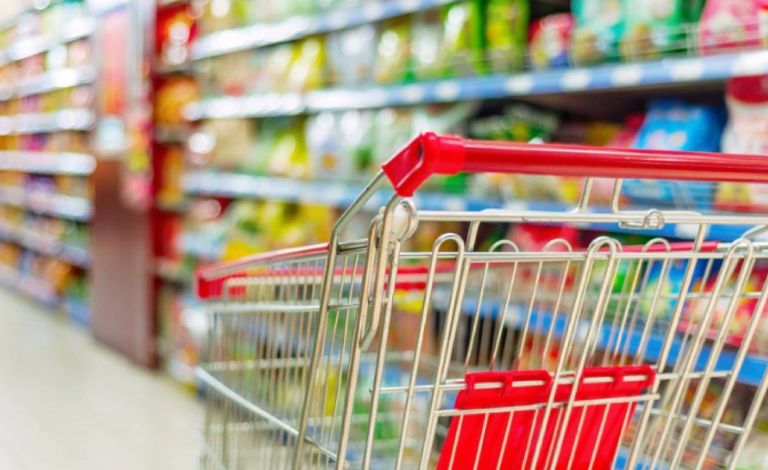
The great pressures that family budgets have begun to receive from the significant price increases in energy products and fuels have begun to be reflected in the receipts of supermarkets.
Although the fast-moving commodity market (FMCGs) recorded a 2% increase in revenue in November, sales fell in November, according to a Nielsen IQ survey.
Indicatively, it is mentioned that according to the data of Nielsen IQ, the week that ended on 14/11 shows a decline of 6.6% in value compared to last year. Of course, on such days last year, apart from grocery stores and supermarkets, the rest of the market was in lockdown.
It should be noted, however, that the downward trend had already begun to appear as early as the last week of October.
Delayed inflation
In particular, as the CEO of NielsenIQ, Mr. Vaios Dimoragas, stated yesterday, in the context of the conference organized by IELKA (Consumer Research Institute), “inflation in FMCGs is restrained until October, so it has no significant impact. “The broader inflation of 3.4% in October seems to be the one that has to some extent affected the supermarket sector.”
In October, prices on supermarket products rose by 1%, a percentage that can not be described as high inflation, said Mr. Dimoragas. “We can assume that the wider inflation of 3.4% also affected the high-speed markets, with the consumer limiting his spending in order to manage the increased expenses on energy bills and on gasoline,” said Mr. Dimoragas.
The list of high prices
The largest price increases in October compared to the same month last year, according to Nielsen IQ, are found in the average prices of seed oils (+ 34.2%), olive oils (+ 16.3%), sauce products (+9 , 4%), ready-made baby food (+ 7.7%), coffee capsules (+ 6.3%), frozen vegetables (+ 7.1%), pies (+ 3.1%), ice cream (+ 3.7%) and wines (+ 6.3%).
In contrast, the personal care product category, which grew significantly in 2020, declined in October as consumers cut spending on these products due to inflationary pressures. The decrease in volume was 4.4%, in value the decrease was 2.2% when the average price increased by 2.3%.
Household items also show a negative sign at -2.6%.
Latest News

Airbnb: Greece’s Short-Term Rentals Dip in March Amid Easter Shift
Data from analytics firm AirDNA shows that average occupancy for short-term rentals dropped to 45% in March, down from 49% the same month last year.

Easter Week in Greece: Holy Friday in Orthodoxy Today
At the Vespers service on Friday evening the image of Christ is removed from the Cross and wrapped in a white cloth

Meloni and Trump Meet in Washington, Vow to Strengthen Western Ties
“I am 100% sure there will be no problems reaching a deal on tariffs with the EU—none whatsoever,” Trump stressed.

ECB Cuts Interest Rates by 25 Basis Points in Expected Move
The ECB’s Governing Council opted to lower the deposit facility rate—the benchmark for signaling monetary policy direction—citing an updated assessment of inflation prospects, the dynamics of underlying inflation, and the strength of monetary policy transmission.

Current Account Deficit Fell by €573.2ml Feb. 2025: BoG
The improvement of Greece’s current account was mainly attributed to a more robust balance of goods and, to a lesser extent, an improved primary income account

Hellenic Food Authority Issues Food Safety Tips for Easter
Food safety tips on how to make sure your lamb has been properly inspected and your eggs stay fresh.

Greek Kiwifruit Exports Smash 200,000-Ton Mark, Setting New Record
According to data by the Association of Greek Fruit, Vegetable and Juice Exporters, Incofruit Hellas, between September 1, 2024, and April 17, 2025, kiwifruit exports increased by 14.2%.

Easter Tourism Boom: Greece Sees 18.3% Surge in Hotel Bookings
Among foreign markets, Israel has emerged as the biggest growth driver, with hotel bookings more than doubling—up 178.5% year-on-year.

Greece to Launch Fast-Track Tender for Offshore Hydrocarbon Exploration
Last week, Papastavrou signed the acceptance of interest for the two Cretan blocks, while similar decisions regarding the two Ionian Sea blocks were signed by his predecessor

American-Hellenic Chamber of Commerce to Open Washington D.C. Branch
AmCham's new office aims aims to deepen U.S.-Greece economic ties and promote investment and innovation between the two countries







![Πλημμύρες: Σημειώθηκαν σε επίπεδα ρεκόρ στην Ευρώπη το 2024 [γράφημα]](https://www.ot.gr/wp-content/uploads/2025/04/FLOOD_HUNGRY-90x90.jpg)




![Airbnb: Πτωτικά κινήθηκε η ζήτηση τον Μάρτιο – Τι δείχνουν τα στοιχεία [γράφημα]](https://www.ot.gr/wp-content/uploads/2024/07/airbnb-gba8e58468_1280-1-90x90.jpg)

























![Airbnb: Πτωτικά κινήθηκε η ζήτηση τον Μάρτιο – Τι δείχνουν τα στοιχεία [γράφημα]](https://www.ot.gr/wp-content/uploads/2024/07/airbnb-gba8e58468_1280-1-600x500.jpg)


 Αριθμός Πιστοποίησης
Αριθμός Πιστοποίησης